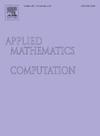进化博弈论中的强化学习:近期发展的简要回顾
IF 3.4
2区 数学
Q1 MATHEMATICS, APPLIED
引用次数: 0
摘要
随着人工智能的快速发展,进化博弈论与强化学习的融合成为近年来的研究热点。进化博弈论为描述个体之间的策略交互提供了一个数学框架,传统上基于预定义的、基于规则的策略更新协议。相比之下,强化学习使智能体能够通过试错学习自适应地选择最优行为,从而更好地反映现实世界的决策。这些互补的特性为它们的融合奠定了基础。本文介绍了当代强化学习在进化博弈论中的应用,重点介绍了那些最近发表的研究成果,这些研究成果开辟了新的研究路径,丰富了我们对互惠合作的理解。我们总结了主要的概念和术语,包括集体合作的基本问题,复杂群体动态的建模,算法参数的影响,以及深度学习的结合。最后,我们讨论了这一跨学科领域的前景,强调了通过进化博弈的视角进行智能学习的重要性。本文章由计算机程序翻译,如有差异,请以英文原文为准。
Reinforcement learning in evolutionary game theory: A brief review of recent developments
With the rapid progress of artificial intelligence, the integration of evolutionary game theory and reinforcement learning has become a hot research frontier in the last years. Evolutionary game theory provides a mathematical framework for depicting the strategy interaction among individuals, traditionally based on pre-defined, rule-based strategy update protocols. In contrast, reinforcement learning enables agents to adaptively select optimal actions through trial-and-error learning, hence better reflecting real-world decision-making. These complementary features create the foundation for their convergence. Our paper presents a didactic review of contemporary reinforcement learning applications in evolutionary game theory, focusing on those recently published works which open novel research paths to enrich our understanding of mutualistic cooperation. We summarize major concepts and terms, including the basic problem of collective cooperation, modeling of complex population dynamics, influence of algorithmic parameters, and the combination of deep learning. Finally, we discuss prospects for this interdisciplinary field, emphasizing the importance of intelligent learning through the lens of evolutionary game.
求助全文
通过发布文献求助,成功后即可免费获取论文全文。
去求助
来源期刊
CiteScore
7.90
自引率
10.00%
发文量
755
审稿时长
36 days
期刊介绍:
Applied Mathematics and Computation addresses work at the interface between applied mathematics, numerical computation, and applications of systems – oriented ideas to the physical, biological, social, and behavioral sciences, and emphasizes papers of a computational nature focusing on new algorithms, their analysis and numerical results.
In addition to presenting research papers, Applied Mathematics and Computation publishes review articles and single–topics issues.

 求助内容:
求助内容: 应助结果提醒方式:
应助结果提醒方式:


